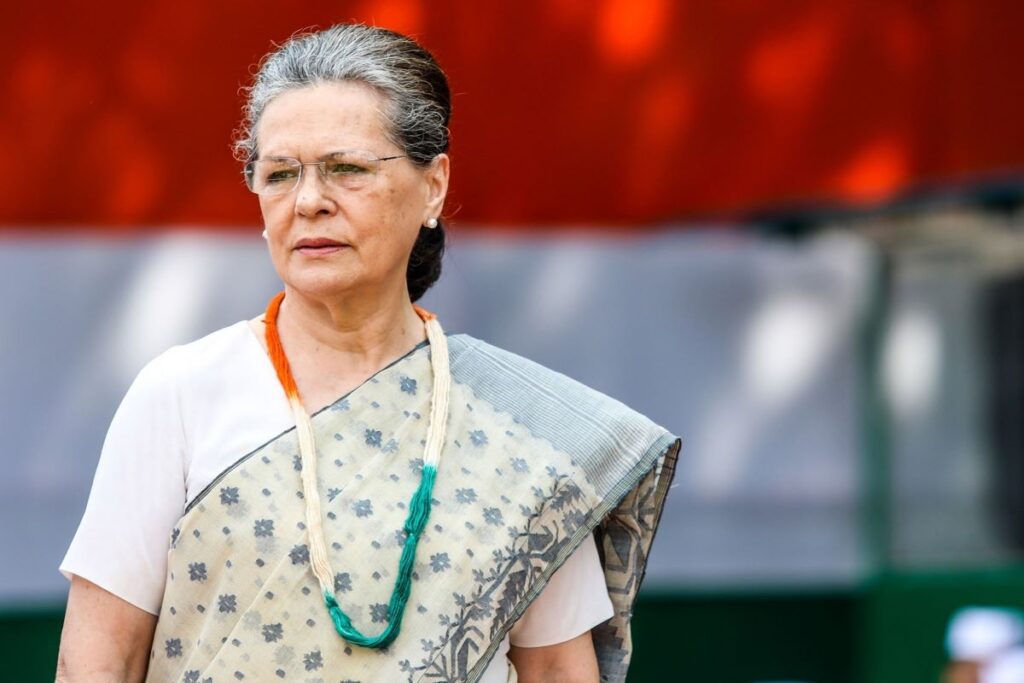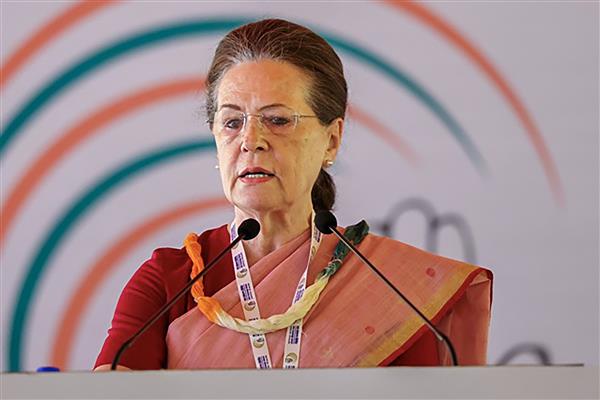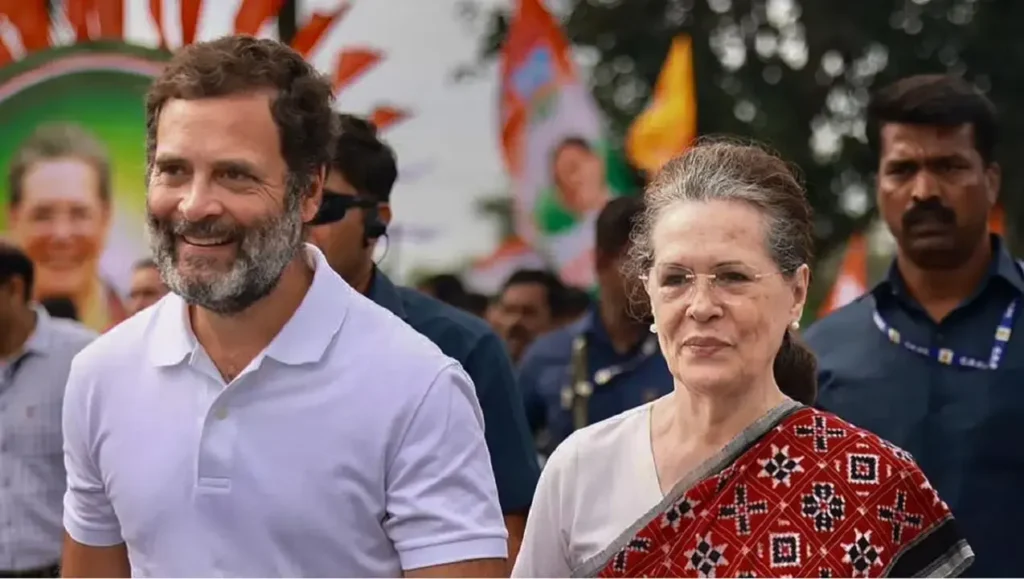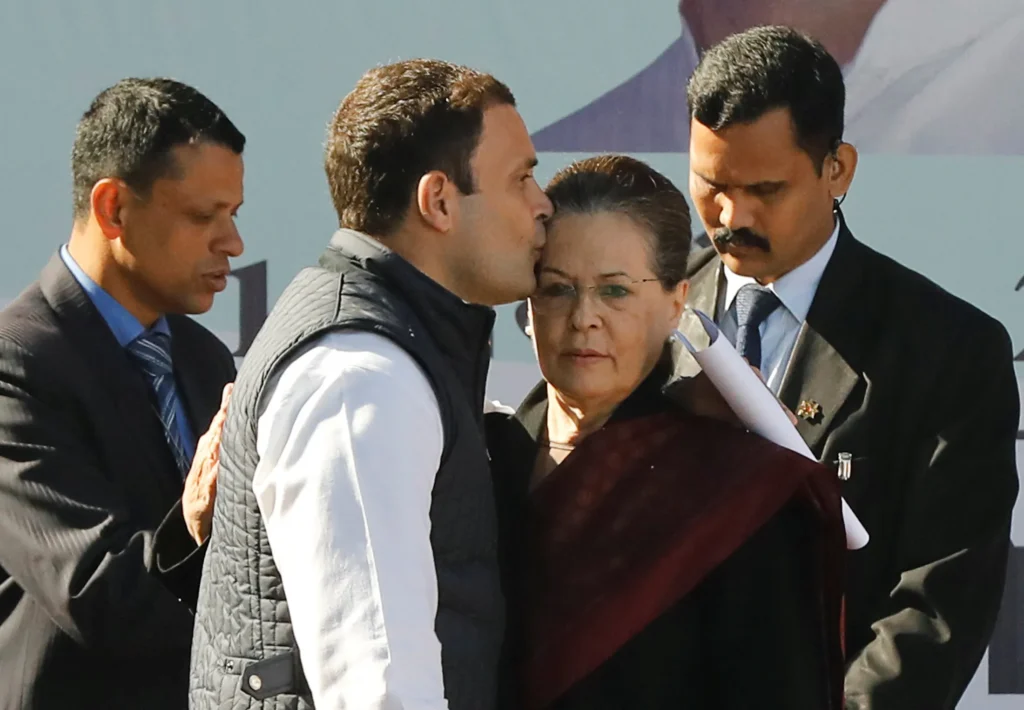-
Dec, Thu, 2023
Sonia Gandhi Biography: Early Life, Education, Political Career, Net Worth, Recognition & More
Sonia Gandhi Biography: Early Life, Education, Political Career, Net Worth, Recognition & More
Sonia Gandhi, whose birth name is Edvige Antonia Albina Màino, was born on December 9, 1946, in Lusiana, a small village near Vicenza in Italy. She was raised in a traditional Roman Catholic family.
In 1964, Sonia met Rajiv Gandhi, the elder son of then-Prime Minister of India, Indira Gandhi, in Cambridge, England, where they were both studying. They got married in 1968 and moved to India. Sonia Gandhi, initially, was not involved in politics but focused on raising her family.
Tragedy struck the Gandhi family in 1984 when Indira Gandhi, Sonia’s mother-in-law and then Prime Minister of India, was assassinated. Sonia Gandhi’s husband, Rajiv Gandhi, eventually entered politics and became the Prime Minister of India after his mother’s death. Tragically, he was also assassinated in 1991.
Sonia Gandhi was reluctant to enter politics after her husband’s death but eventually joined the Indian National Congress, the political party of the Gandhi family. In 1998, she became the party leader and played a pivotal role in revitalizing the Congress Party, which was struggling at that time.
Under her leadership, the Congress Party won the general elections in 2004. However, Sonia Gandhi declined the opportunity to become Prime Minister, instead nominating Manmohan Singh for the position. During her tenure as the President of the Indian National Congress, she faced both praise and criticism for her leadership style and decisions.
She continued to serve as the President of the Indian National Congress until 2017, after which her son, Rahul Gandhi, took over the leadership role. However, Sonia Gandhi remained an influential figure within the party and Indian politics.
Sonia Gandhi has been recognized for her philanthropic work and has advocated for various social causes, especially focusing on women’s empowerment, education, and healthcare.
Her journey in Indian politics has been marked by both acclaim and controversy, with supporters praising her efforts to strengthen the Congress Party and critics highlighting issues related to her foreign origin and accusations of dynastic politics.
Overall, Sonia Gandhi has been a significant figure in Indian politics, playing a crucial role in the Indian National Congress and contributing to the country’s political landscape for several decades.

Sonia Gandhi, born Edvige Antonia Albina Màino, grew up in a small village called Lusiana near Vicenza in Italy. She was born on December 9, 1946, to Stefano and Paola Maino in a traditional Roman Catholic family.
Her father, Stefano Maino, was a building contractor, and her mother, Paola Maino, was a housewife. Sonia was the youngest of three siblings. She had an elder brother named Anonio and a sister named Nadia.
Sonia had a relatively ordinary upbringing in her Italian village. She attended local schools and was known to be a reserved and private person from a young age. Growing up, she developed an interest in languages and was fluent in several, including English and French, in addition to her native Italian.
Her life took a turn when she met Rajiv Gandhi, who was studying in England at the time. They fell in love and eventually got married in 1968. Sonia’s entry into the Gandhi family introduced her to the world of Indian politics, which was deeply embedded in the life of her husband’s family.
Sonia Gandhi’s childhood in Italy was relatively quiet and away from the public eye. Her journey into Indian politics and her subsequent role as a prominent figure in the Indian National Congress came about much later in her life after she moved to India following her marriage to Rajiv Gandhi.
Sonia Gandhi, born Edvige Antonia Albina Màino, married into the Nehru-Gandhi family, one of the most influential political families in India. Here’s an overview of her immediate family:
Parents:
- Father: Stefano Maino was a building contractor in Italy. He passed away in 1983.
- Mother: Paola Maino was a homemaker. She passed away in 1988.
Siblings:
- Elder Brother: Anonio Maino
- Sister: Nadia Maino
Husband:
- Rajiv Gandhi: Sonia Gandhi married Rajiv Gandhi, the elder son of then-Prime Minister Indira Gandhi, in 1968. Rajiv Gandhi later became the Prime Minister of India after the assassination of his mother, Indira Gandhi, in 1984. Tragically, Rajiv Gandhi was also assassinated in 1991.
Children: Sonia and Rajiv Gandhi had two children:
- Rahul Gandhi: Born in 1970, Rahul Gandhi is an Indian politician and a member of the Indian National Congress. He has served in various capacities within the party, including as its President.
- Priyanka Gandhi Vadra: Born in 1972, Priyanka Gandhi Vadra is also an Indian politician associated with the Indian National Congress. While she’s been active in politics, she primarily focused on campaign strategies and grassroots mobilization.
Sonia Gandhi’s family ties extend through her marriage to Rajiv Gandhi, connecting her to the larger Nehru-Gandhi family, which has played a significant role in shaping Indian politics. Her role within this influential family has been pivotal in the context of Indian politics and the Indian National Congress party.
Sonia Gandhi: Education
Sonia Gandhi, born as Edvige Antonia Albina Màino, completed her initial education in Italy before moving to England for further studies. Her educational background includes:
Schooling: Sonia completed her early education in Italy. She was known to have a keen interest in languages and became fluent in several languages, including English and French, in addition to her native Italian.
University: She attended a language school in Cambridge, England, where she met Rajiv Gandhi, who was also studying there at the time. She and Rajiv fell in love, leading to their marriage in 1968.
Sonia Gandhi’s educational journey wasn’t extensively documented in the public domain. After her marriage to Rajiv Gandhi, she became part of the Nehru-Gandhi family and subsequently moved to India, where her life took a different trajectory, primarily focusing on family life and eventually entering the realm of Indian politics after her husband’s involvement and tragic demise.
Sonia Gandhi, the widow of former Indian Prime Minister Rajiv Gandhi, has had a life heavily involved in politics and public service. However, details of her personal life, interests, and hobbies have often been private and less publicly documented.
Here are some known aspects of Sonia Gandhi’s personal life:
Reserved Personality: Sonia Gandhi is known to be a private and reserved individual. She has maintained a low public profile regarding her personal preferences, hobbies, and interests.
Family-Oriented: Her primary focus has been on her family. After marrying Rajiv Gandhi in 1968, she dedicated herself to her husband and children. Following Rajiv Gandhi’s entry into politics and subsequent prime ministership, Sonia played a crucial role in supporting her family and later in the Indian National Congress party.
Languages: Sonia Gandhi has a flair for languages. She is known to be fluent in multiple languages, including English, Italian, and French.
Political Involvement: While her public life has revolved significantly around politics and the Indian National Congress, Sonia Gandhi is known for her commitment to social causes, especially in areas related to women’s empowerment, healthcare, and education.
Health: Sonia Gandhi has faced health challenges over the years, which at times have led to periods of reduced public appearances and engagements.
Overall, Sonia Gandhi’s personal life has been guarded, with limited information available in the public domain. Her focus and public image have been largely associated with her role in Indian politics, her leadership within the Indian National Congress, and her dedication to serving the people of India.
Sonia Gandhi: Political Career
Sonia Gandhi’s political career began after the assassination of her husband, Rajiv Gandhi, who served as the Prime Minister of India. Initially, she was reluctant to enter politics, preferring to remain in the background and focus on her family. However, circumstances and the insistence of many within the Congress party led her to reconsider.
Here is an outline of Sonia Gandhi’s political journey:
Entry into Politics:
- After the assassination of Rajiv Gandhi in 1991, Sonia Gandhi was encouraged by members of the Indian National Congress and the public to join politics. However, she hesitated initially due to the tragic circumstances and her unfamiliarity with Indian politics.
Leadership of the Congress Party:
- Sonia Gandhi took a more active role in the Congress Party in the late 1990s. In 1998, she became the President of the Indian National Congress, revitalizing the party that was facing internal and external challenges.
- Under her leadership, the Congress Party witnessed a resurgence and won the general elections in 2004, leading to the formation of the United Progressive Alliance (UPA) government.
Refusal of Prime Ministership:
- Despite the Congress Party’s victory in the 2004 elections, Sonia Gandhi declined the position of Prime Minister. She nominated Dr. Manmohan Singh for the role due to concerns raised by some political quarters about her foreign origin.
Role in UPA Government:
- Although not serving as Prime Minister, Sonia Gandhi was an influential figure within the UPA government. She held the position of Chairperson of the UPA, playing a crucial role in shaping policies and decisions.
Continued Leadership and Influence:
- Sonia Gandhi served as the President of the Indian National Congress until 2017 when she handed over the reins of the party to her son, Rahul Gandhi. However, she remained a prominent figure and an influential force within the party.
Throughout her political career, Sonia Gandhi has been both praised for her efforts in rejuvenating the Congress Party and criticized for her foreign origin and perceived role in dynastic politics. Despite controversies and challenges, she has been a key figure in Indian politics, wielding significant influence within the Congress Party and the larger political landscape of India.
Sonia Gandhi: Net Worth
In the year 2014, Sonia Gandhi declared her net worth ₹ 92.8 million – ₹ 28.1 million in movable and ₹ 64.7 million in immovable properties. This is an almost six-fold increase since her declaration in the last election.
Sonia Gandhi: Recognitions
Sonia Gandhi, as a prominent political figure in India, has received various recognitions and awards over the years, acknowledging her contributions to politics and public service. Some of the notable recognitions and honors bestowed upon Sonia Gandhi include:
Order of King Leopold (Belgium): She was conferred the Grand Cordon of the Order of King Leopold, a Belgian honor, in recognition of her contributions to public service.
Doctorate Honoris Causa: Sonia Gandhi has received honorary doctorate degrees from various universities, recognizing her contributions to public life and politics.
Philanthropic and Social Awards: She has been acknowledged and awarded by several organizations for her philanthropic work and advocacy for social causes, particularly in the areas of women’s empowerment, education, and healthcare.
Political Leadership: While not an official recognition, Sonia Gandhi’s leadership within the Indian National Congress and her influential role in Indian politics have garnered acknowledgment from her supporters within the party and the wider political community in India.
International Recognition: She has been recognized internationally for her role as an influential political figure and her efforts towards the development of the Indian National Congress.
These recognitions underscore Sonia Gandhi’s impact in the realms of politics, social welfare, and public service. However, it’s important to note that opinions about her contributions and leadership within the political landscape can vary widely, and recognition might also be subject to differing perspectives and political affiliations.
Sonia Gandhi: Books on the Interim President of Congress
There are several books that discuss the life, political career, and influence of Sonia Gandhi, the former President of the Indian National Congress. Some of these books provide insights into her personal life, her entry into Indian politics, her leadership within the Congress party, and her impact on Indian politics. Here are a few notable books on Sonia Gandhi:
“Sonia Gandhi: An Extraordinary Life, An Indian Destiny” by Rani Singh: This biography offers an in-depth exploration of Sonia Gandhi’s life, from her childhood in Italy to her journey into Indian politics, and her eventual rise as a prominent political figure.
“The Red Sari: A Dramatised Biography of Sonia Gandhi” by Javier Moro: This book, although a dramatized biography, provides an account of Sonia Gandhi’s life, her marriage into the Nehru-Gandhi family, and her transformation from a private individual to a significant political figure.
“Sonia Gandhi: Tryst with India” by Nurul Islam Anu: This book delves into Sonia Gandhi’s entry into Indian politics, her leadership style, and her contributions to the Indian National Congress, offering insights into her political journey and her impact on Indian society.
“Sonia Gandhi: The Lady in Shadow” by Rupa Chaterjee: This book examines Sonia Gandhi’s political life, her challenges, controversies, and her role within the Congress party, shedding light on her leadership and the political dynamics of the time.
These books vary in their perspectives and approaches to Sonia Gandhi’s life and career, offering readers different insights into her personal journey, her political strategies, and her influence on Indian politics. As with any literature discussing political figures, it’s essential to consider various sources and viewpoints to gain a comprehensive understanding of Sonia Gandhi’s life and contributions to Indian politics.



